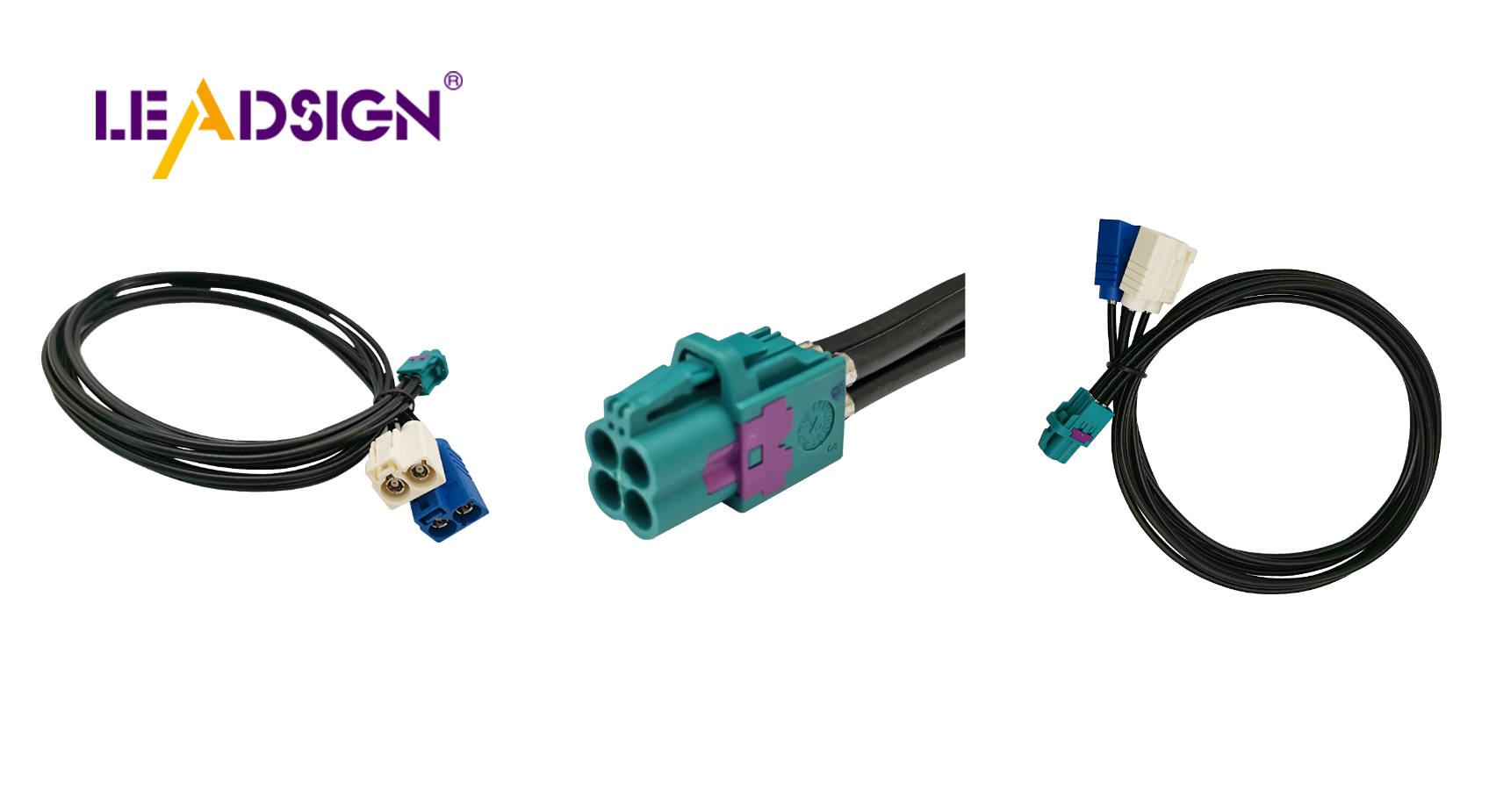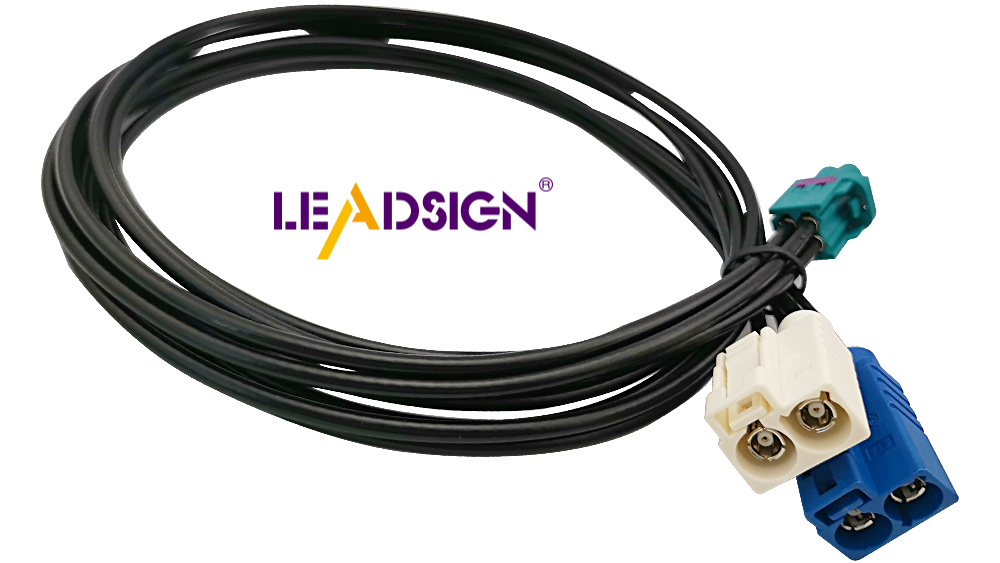Top Tips for Types of Wire Connectors Automotive

Choosing the right automotive electrical connectors types is crucial for your vehicle's electrical system to function effectively. High-quality connectors, such as OEM ones, ensure strong connections, preventing potential issues. When selecting connectors, consider factors like signal quality and current capacity. Various types of automotive electrical connectors serve different purposes; for instance, bullet connectors are quick to use, while weatherproof connectors protect against adverse weather conditions. Selecting the appropriate connectors enhances your car's performance and ensures its safety over time.
Understanding Automotive Electrical Connectors Types

Bullet Connectors
Bullet connectors are important in car electrical systems. They help when you need to disconnect circuits fast. These connectors are round and fit tightly together, making a strong link. Bullet Connectors are often used in car stereo wiring, especially for speakers. They are easy to put in and take out, which is great if you need to connect or disconnect parts often.
Best use cases for bullet connectors
Use bullet connectors when quick disconnection is needed. They work well in audio setups, letting you change speakers easily. Also, they are good for temporary connections during tests. Their simplicity makes them popular for DIY car projects.
Butt Connectors
Butt connectors do something different with wires in cars. They join two wires end-to-end straightly. Use them when extending a wire or joining different wires together. Wires go into each end of the butt connector and are crimped tight.
When to use butt connectors
Use butt connectors for fixing or adding car wiring. They're good for lengthening short wires or joining different wire sizes. Butt connectors give a strong link, keeping your car's electric system working well. They're common in repairs because they're versatile and simple.
Quick Disconnects
Quick disconnects have many benefits in cars. They let you connect and disconnect wires easily without tools. These have male and female parts that snap together securely.
Applications of quick disconnects
Quick disconnects are useful in many car uses. They're often used with batteries so you can remove or replace them quickly. Also, they're great for connecting things like lights or horns where frequent disconnection is needed. Their easy design makes them loved by both hobbyists and pros.
Weatherproof Connectors
Weatherproof connectors are important for cars. They protect wires from water and dust. This keeps your car's electrical parts safe and working well.
Why weatherproof connectors matter
In tough places, these connectors are a must. Rain, snow, or dirt can harm your car's wiring. Weatherproof connectors stop water and dirt from causing problems. They help avoid rust and keep electricity flowing right.
When to use weatherproof connectors
Use them in wet or snowy areas. They keep your car safe from bad weather. Off-road drivers need them too because of mud and dust. If you drive near the sea, they guard against salty water.
Picking the right wire connectors helps your car last longer. Weatherproof ones make sure everything works fine even in hard conditions.
Picking the Right Connector
Choosing the right connector for your car is important. Each thing you think about helps keep your car's electrical system working well and lasting long.
Think About the Environment
When picking connectors, think about things like heat and wetness. Automotive electrical connectors types should handle tough conditions. Good connectors can take high heat and wetness, stopping rust and electric problems. For example, connectors with high IP ratings keep out dust and water. This makes sure your car's electrical parts work well even when it's hard outside.
Electrical Needs
Match connectors to your car's electric needs. Make sure they can handle the power and voltage of your system. If not, it might get too hot or break down. Good connectors stop these problems, so your car runs smoothly. Always check if the connectors fit with your car's electrical system.
Strength and Material
The stuff used in connectors affects how they work. Strong materials help them take hits and bad weather. For example, OEM connectors are made for tough car places, stopping rust and breaks. Picking good material means they last longer and work better. Check them often to stop problems and make them last.
Best Practices for Using Connectors
Proper Installation Techniques
Install connectors the right way for a strong link. Follow these steps:
Strip the Wire Properly: Take off just enough cover to show the wire. Don't hurt it. This makes sure it connects well.
Choose the Right Tool: Use a crimping tool made for your connector type. This stops harm and fits securely.
Check the Fit: Before crimping, make sure the wire fits tightly in the connector. A loose fit can cause bad connections.
Crimp Securely: Press down firmly when crimping. This makes a strong bond between wire and connector.
Maintenance and Inspection
Regular care helps connectors last longer. Here's how to keep them good:
Inspect Regularly: Look at connectors for wear or rust signs. Finding problems early stops bigger ones.
Clean Contacts: Use a safe cleaner to remove dirt and rust from contacts. This helps them work better.
Tighten Connections: Make sure all connections stay tight. Loose ones can cause electric problems.
Replace Damaged Parts: Change any connectors that look worn or broken. This keeps your system working well.
Safety Precautions
Safety is very important with car connectors. Do these things to avoid accidents:
Power Off: Always turn off power before working on wires. This stops shocks and damage.
Use Protective Gear: Wear gloves and goggles to stay safe from sparks or bits flying around.
Avoid Moisture: Keep connectors dry when installing or fixing them. Wetness can cause short circuits.
Follow Manufacturer Guidelines: Stick to instructions from the maker of the connector for safe use.
By following these best practices, you make sure your car's electrical connectors work safely and well. Good installation, regular checks, and safety steps are key for keeping your car's electric system strong.
This blog taught you about different car wire connectors and how to use them. Picking the right connector helps your car's electric system work well. Main Ideas:
Bullet Connectors: Good for fast disconnections.
Butt Connectors: Great for joining wires straight.
Quick Disconnects: Make connections easy without tools.
Weatherproof Connectors: Keep wires safe from bad weather.
Choosing the right connectors boosts your car's performance and keeps it safe. Check and clean them often to stop dust and rust. Always make sure they fit with OEM parts to avoid problems.
See Also
Why FAKRA Connectors Matter in Automotive Technology
Benefits of HFM Connectors for Automotive Solutions
Significance of Fakra Connectors in Automotive Systems

